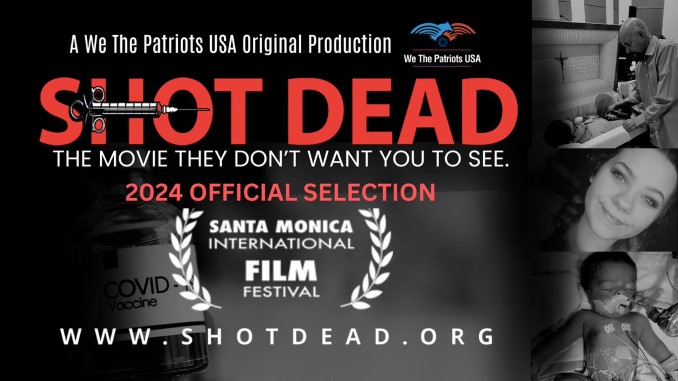”(The US Banks issued 4.8 trillion in fraudulent mortgages and toxic loans) … but they could not bring them trial because of the institutions were so large and so internationally connected that indicting them could wreck the entre financial system…If you are going pick on a bank, a family-owned company, wedged between a couple of noodle shops in Chinatown is about as easy a target as you could possibly pick.”
Neil Barofsky, a Former Head of Mortgage Fraud at US Attorney Office in NY, appearing in the movie Abacus
Check it Out!
By Nina Heyn, Your Culture Scout
Do you know how many banks have been indicted for mortgage fraud after the 2008 banking crisis? One.
That bank is called Abacus Federal Savings, it ranked 2531 in the US banks list by size and it is based in New York’s Chinatown. This is the bank that was pursued for five and half years in court by Manhattan District Attorney Cyrus R. Vance Jr. who launched an accusation of close to 200 counts of mortgage fraud against this tiny community bank.
The story is so mind-boggling that it became a subject of a feature documentary by an award-winning director Steven James and it was this year’s nominee for a Best Documentary Feature Oscar. James made his name as a documentarist with his classic Hoop Dreams where he followed for years two inner-city Chicago boys dreaming to become college basketball players. His other socially-minded documentaries include Interrupters about ex-convicts who go out into Chicago streets trying to talk gang members out of shooting at one another, and Head Games – a story about a footballer who is crusading against concussions in contact sports. James made Head Games a good few years before the Concussion movie with Will Smith made major news out of the same controversial issue. James does not make too many movies – only about half a dozen full-length documentaries in 20 years but when he does make them, they are thoughtful, socially engaged and trying to point out some major societal problem. He is also a master of getting his subjects open up to camera, both the protagonists and the antagonists. This allows him to tell the story with an objective, fly-on-the wall style that is well suited to portraying the Chinese family that is at the center of Abacus story.
Thomas Sung was born in Shanghai in 1935 and came to New York as a nineteen-year-old. He became a successful lawyer and a community leader until he had an epiphany that his neighborhood bank would gladly take deposits from Chinatown’s residents but it was reluctant to offer them loans. In 1984 Mr. Sung opened the Abacus Bank with an express goal to serve the Chinese immigrant community and he has been running this company well into his seventies. His daughters joined him at the bank and it became a key player in financial and social life of the Chinatown community. One day in 2009, Vera Sung discovered that one of the employees, Ken Yu has issued a fraudulent loan. Soon they discovered that Yu made more of these loans so they fired him and notified authorities. Then the hell broke loose.
Abacus – Small Enough to Jail tracks an investigation that was triggered by the Sung family doing a due diligence of reporting fraud (they actually provided the authorities with 900,000 documents) and which quickly avalanched into some absurd witch-hunt. The bank was accused of defrauding Fannie Mae even though it turned out that in 2009 out of over 4300 of their loans only 16 were very delinquent which is 0.03 % compared to the 6,3% average for that year for seriously delinquent loans. The Sungs spent the next five years in court, trying to defend themselves against 184 counts of fraud, spending $10 million on defense and trying to save the bank from closure. The news of the bank’s troubles caused at some point a classic run on the bank, Depression-style, when depositors withdrew $44 million in one day and almost caused street riots.
One of the reasons documentaries are made and watched is a need to tell the world a story of some wrongdoing perpetrated on ordinary people by some authority. In this respect Abacus is similar to another excellent documentary Dinosaur 13, another amazing true story of how decent, earnest people have been robbed of their find and their dignity by the big guys in power. Dinosaur 13 records the way the largest T-rex skeleton ever discovered is taken away from its finders by both the authorities and a powerful museum. Abacus is a story of a family and their employees fighting an army of government lawyers and judges who need a scapegoat in a national financial scandal. There is also however a cultural aspect to this story, more original and fascinating than just a story of a David versus Goliath.
Chinese culture places a great importance on preserving dignity and honor as well as fulfilling one’s obligations. The harrowing ordeal of the Sungs that we see in the movie is not only caused by a threat of losing their family wealth and freedom. What we see happening to them is what in Chinese is called “a loss of face.” Mr. Sung has walked streets of his Chinatown neighborhood for decades, known and respected by street vendors, restaurant staff and owners of 8000 deposit boxes located at the bank. Suddenly, his family and employees are brought to court tied to each other in chains, shuffling and bent double in a line like an illustration from an 18th century plantation in Virginia. The bank that was founded as a community stalwart is painted to the jury and public opinion as a den of thieves. Chinese culture is based on countless obligations – you have an obligation to your parents for giving you your life and upbringing. You owe your employer for a chance to make a living. And if you are handling someone’s money, like a bank does, you have an obligation to protect it. Since the investigation was dragging on for years, the Sungs were struggling to fulfill this obligation. They endured a run on the bank, they were unable to make new loans and above all they were seen as dishonorable in the world where honor is more important than money or social standing.
The movie is very good at highlighting this cultural disconnect. There is a juror, a woman who was seeking a guilty verdict in the trial, and considers all the loans not supported by full paperwork as fraudulent — she clearly is unfamiliar with the Asian tradition of cash presents given by relatives to help buy a house. There is also Cyrus R. Vance Jr., the district attorney who oversaw the case, who states that “accusations of cultural bias are entirely misplaced and entirely wrong.” Taking women and old men gang-chained on a way to court when accused of non-violent crime, clearly have no racial connotations for him despite the entire American history. James’s documentaries about inner-city Chicago youths have clearly prepared him well to see beyond his own cultural and racial environment. Abacus is a great story of the social injustice perpetrated in the name of justice but it is also a great story about how the melting pot will never entirely melt.
By the way, by early May 2015 Fannie Mae and the investors who bought securities containing the Abacus bank loans had earned $2.5 million in interest. 19 out of the 31 loans that Abacus had with Fannie Mae have been paid off; the rest is current.







FYI… as of May 19, 2018, “Abacus: Small Enough to Jail” is available on Netflix
Thanks! It was an Oscar nominee, so not surprised.
I just watched the whole documentary. You could easily call this “A Man and His Four Daughters” or “What Happens When You Send All Your Kids to Law School”.
I would say that this is a case of cultural misunderstanding. My own realtor told me that at least half of her business the past few years are Vietnamese families. They often have cash from relatives and the families pool their resources from cash-based businesses. That’s not really fraud, just a different culture.
And then I keep remembering the way those poor employees were dragged down a hallway in handcuffs. And racism has to be included in the equation. I can almost hear the Law and Order ping-ping noise and one of the attorneys saying they like Abacus for prosecution. Whether they were aware of their own bias …
It seems odd to me that whether or not anyone was hurt was seen as not relevant.
I remember our family trips to Chinatown when I was a girl. I thought it was a magical place … but one thing you pick up – even as a child – is how hard those people work, how honest they are, and how intelligent. It doesn’t surprise me that so few of those loans defaulted.
We will publish a Solari Report interview with reporter Dave Lindorff about the Abacus story. I find this prosecution to provide fascinating insight on what is happening in the financial system.
Wow. I had never even heard of this story. Absolutely appalling.
I am glad that you have put this story out there!….I have seen this documentary, and it is incredibly sad in view of the lack of prosecution given the “big guy banks” all around us. Small businesses and neighborhood banking are the backbone of this country, and when they are gone, what have we? We are at the mercy of conglomerate banks that are impersonal, do not know us by name, and “fee” us to death. Imagine the shame these people felt, after trying to just do right and make a living serving those around them that trusted them with their money. Family and honor are everything to most Asian people.
The hypocrisy and injustice of this prosecution is staggering. The consumption of the planet and its life field progresses unabated it seems. Sucked into the same black hole system as the other trillions that have disappeared. We are continuing to be raided and hijacked. This must be stopped and redressed while we still have some energy quantum left. Thanks to this wonderful film maker for his work.